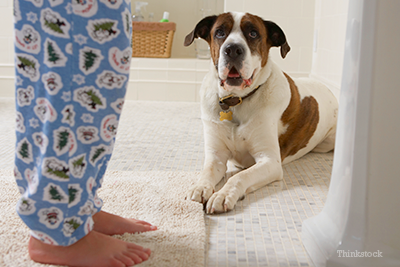
Overview
Aspirin is a drug that has many benefits for both pets and people; unfortunately, it can also be dangerous. Dog owners should never give their four-legged best friends aspirin or any other non-steroidal anti-inflammatory (NSAID) unless advised by their veterinarian.
Symptoms
Dogs with aspirin toxicity may get sick fast. One of the first signs is a lack of appetite; you may also see vomiting, diarrhea, lethargy, and fever. There may be red blood in the vomit, or flecks of digested blood that resemble coffee grounds. If you see dark, tarry feces, this is called “melena” and represents digested blood from the small intestine or stomach. Sometimes, the central nervous system is also affected, and your dog may have trouble walking; he may seem weak or even "drunk."
Diagnosis/Treatment
If you suspect your dog has ingested aspirin, you should call your veterinarian immediately. The doctor may suggest emergency decontamination or may recommend tests to determine how severe the toxicity is. If your vet is not available or it’s after hours, please consider contacting a reliable poison control resource or local emergency clinic for guidance. Tests may include:
- Chemistry tests to evaluate kidney, liver, and pancreatic function, as well as sugar levels
- A complete blood count to identify if your dog is anemic and to check his clotting function
- Electrolyte tests to ensure your dog isn't dehydrated or suffering from an electrolyte imbalance
- A urinalysis to rule out urinary tract abnormalities and to evaluate the ability of the kidneys to concentrate urine
- Fecal testing for blood
If it is determined that your pet has aspirin toxicity, your veterinarian will begin treatment immediately to reduce the impact of the toxicity and to provide supportive care. He or she may recommend hospitalization and monitoring blood tests to ensure your dog becomes stable.
Prevention
The best way to prevent the toxicity of any drug is to make sure you keep all medications away from your pet. If aspirin has been prescribed to your dog by your veterinarian, make sure you does it properly and watch carefully for any adverse signs. Remember: some dogs are “Hoovers”—they will eat anything, so all dangerous or toxic items should be kept out of their reach.
If you have any questions or concerns, you should always visit or call your veterinarian – they are your best resource to ensure the health and well-being of your pets.
